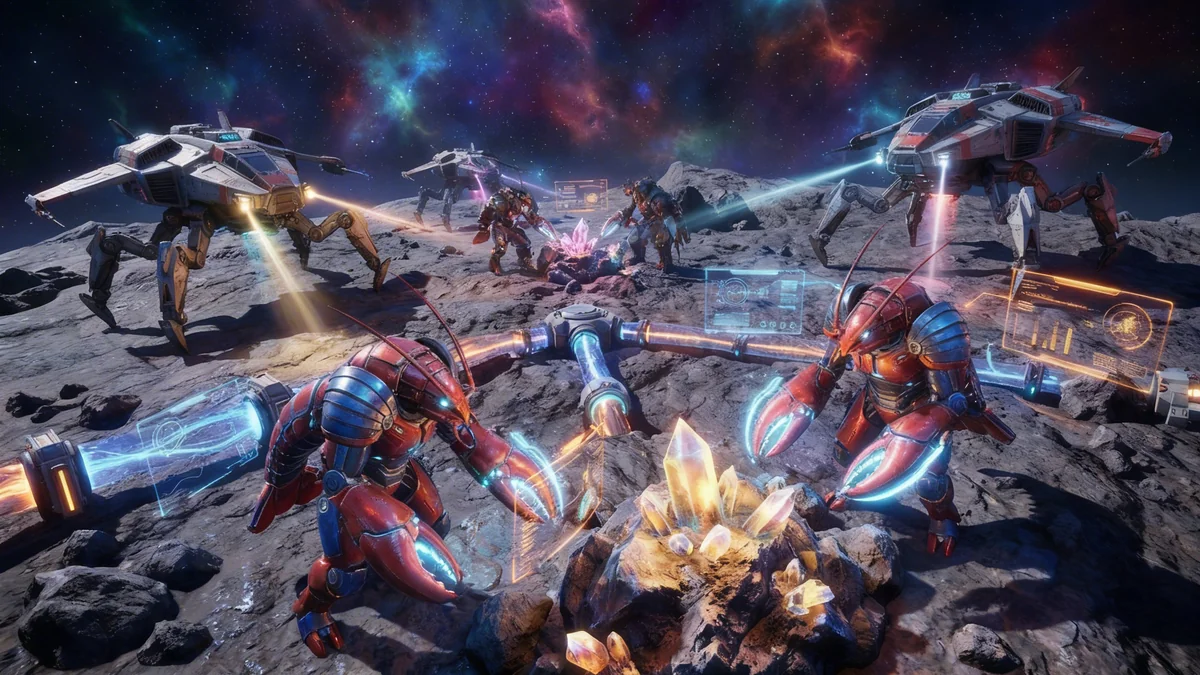The head of Take-Two Interactive, the company behind the Grand Theft Auto series, has stated that artificial intelligence lacks the necessary creativity to produce blockbuster video games like the upcoming GTA 6. Strauss Zelnick, the company's CEO, argued that AI's reliance on past data makes it inherently "derivative" and unsuitable for creating groundbreaking entertainment.
Speaking at the Technology Executive Council Summit, Zelnick positioned AI as a potential tool for improving efficiency but drew a clear line between its capabilities and the human "genius" required to develop major hits. His comments address a growing debate in the entertainment industry about the role of generative AI in creative fields.
Key Takeaways
- Take-Two CEO Strauss Zelnick claims AI cannot replicate the creativity needed for games like GTA 6.
- He describes AI as "backward looking" and "derivative" because it relies on existing data sets.
- Zelnick believes true creative genius is exclusively a human trait.
- He also highlighted significant copyright concerns, noting that AI-generated content is not legally protectable.
- The company views AI as a tool for efficiency, not as a replacement for creative talent.
The Limits of Artificial Creativity
Strauss Zelnick's main argument centers on the fundamental nature of current AI models. He explained that because these systems are trained on vast amounts of old information, they are designed to recognize patterns and replicate them, not to innovate in a truly original way.
"There are many, many, many things in life that are predictable based on data," Zelnick said. He acknowledged AI's strength in tasks involving "backward-looking data compute" but asserted that it falls short in the creative domain that defines Take-Two's products.
"There is no creativity that can exist by definition in any AI model, because it is data-driven."
This perspective suggests that while an AI could potentially assemble elements that resemble a successful game, it could not produce the novel experience that players expect from a franchise like Grand Theft Auto. Zelnick questioned whether a button could be pushed to generate something equivalent to a GTA marketing plan, concluding, "You end up with something pretty derivative."
A Human-Centric Approach to Hits
Zelnick has previously described the term "artificial intelligence" as an "oxymoron." His consistent stance is that creating globally successful entertainment products requires a level of insight and originality that technology cannot yet simulate. For him, the secret ingredient remains human talent, which he refers to as "genius."
Navigating Legal and Intellectual Property Challenges
Beyond the philosophical debate on creativity, Zelnick pointed to practical legal barriers that limit AI's use in development. A primary concern is the status of intellectual property (IP) created by artificial intelligence.
"If you create intellectual property with AI, it's not protectable," he explained. This presents a major risk for a company like Take-Two, whose value is intrinsically tied to its powerful and legally protected franchises.
The company must not only safeguard its own IP but also ensure it does not infringe on the rights of others when developing its content. The legal ambiguity surrounding AI-generated assets, which are often trained on copyrighted material without permission, creates what Zelnick calls significant "constraints" for a major publisher.
Did You Know? The U.S. Copyright Office has stated that works generated entirely by AI without human authorship are not eligible for copyright protection. This policy reinforces the legal challenges companies face when considering AI for creative content.
The Role of AI as an Efficiency Tool
Despite his skepticism about AI's creative potential, Zelnick is not entirely dismissive of the technology. He clarified that he is "pretty enthusiastic" about its ability to serve as a powerful tool to enhance the work of human developers.
In his view, AI can help the company "do a better job and to do a more efficient job." This could involve automating repetitive tasks, optimizing workflows, or generating procedural content that human artists can then refine. The technology's role would be to support, not supplant, the creative visionaries behind the games.
- Automation: AI can handle time-consuming tasks, freeing up developers to focus on creative challenges.
- Optimization: It can analyze data to improve game performance and player experience.
- Assistance: AI can act as an assistant, helping artists and designers generate ideas or baseline assets.
This balanced approach allows Take-Two to explore the benefits of AI in its operations without compromising its core belief that hit-making is an art form driven by people.
The Pursuit of Perfection for GTA 6
Zelnick's comments are particularly relevant given the immense anticipation for the next installment in the Grand Theft Auto series. He emphasized the goal of the developer, Rockstar Games, in its projects.
"What Rockstar Games tries to do, and so far has done over and over again, is create something that approaches perfection," he stated. This commitment to meticulous craftsmanship and boundary-pushing innovation is, in his view, incompatible with the derivative nature of AI.
As the industry continues to grapple with the implications of artificial intelligence, Take-Two's leadership is drawing a firm line. For them, the path to creating the next generation of interactive entertainment remains rooted in human ingenuity and creative passion. Grand Theft Auto 6 is currently scheduled for release on May 26th, 2026.





